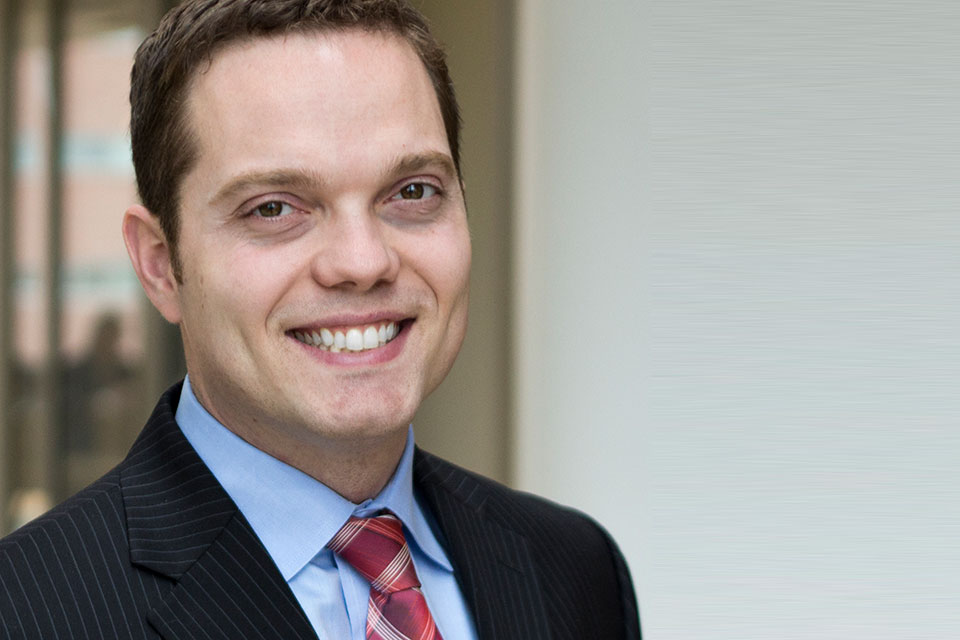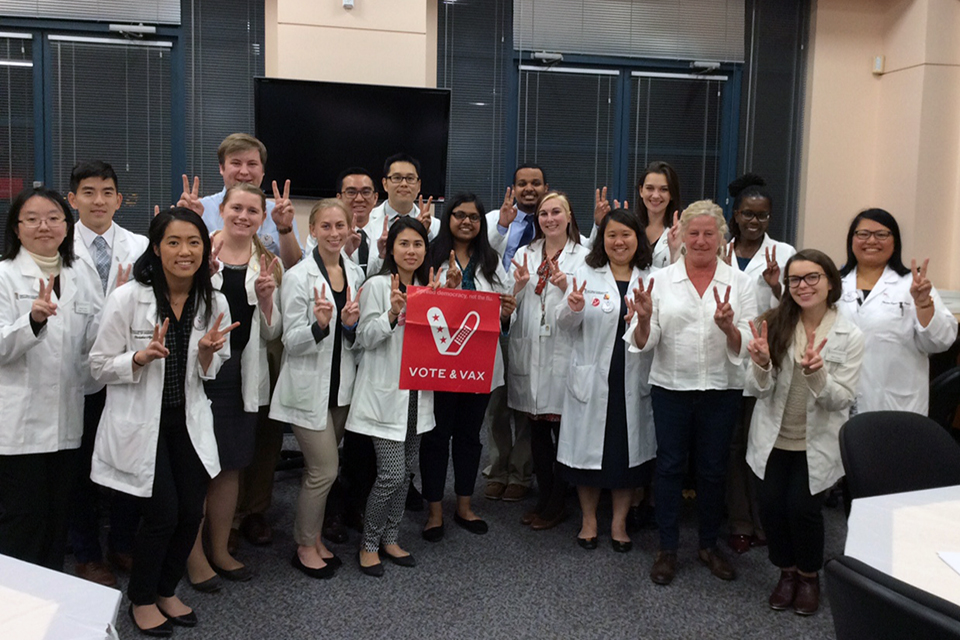SOP ‘Keeps it Real’, Emphasizes Authenticity at Annual Leadership Lecture
Nationally-renowned speaker and clinical psychologist shares her views on leadership and the importance of staying true to one’s self.
By Malissa Carroll
May 2, 2013
In recognition of the “first lady of Maryland pharmacy,” the University of Maryland School of Pharmacy hosted its second annual B. Olive Cole Leadership Lecture on April 24. Sponsored by Lambda Kappa Sigma, this year’s lecture featured guest speaker Paula Bloom, PhD, a practicing clinical psychologist, speaker, author, and mental health expert who is frequently featured on both national and international television news programs.
Bloom received her doctorate from Nova Southeastern University and trained at the Atlanta Veteran’s Affairs Medical Center, which is affiliated with the Emory University School of Medicine. She has been called on by the media to offer perspective on a wide range of events and topics, including national tragedies such as the mass shootings in Aurora, Colo., and Newtown, Conn.; international events, including the Chilean miner rescue and the death of Osama Bin Laden; and topics such as happiness, parenting, psychiatric illness, relationships, communication, and motivation. She focuses her work on helping others find a greater sense of productivity, purpose, and meaning in their relationships and lives.
From the beginning of her presentation, Bloom immediately engaged the audience with her down-to-earth style. She emphasized the importance of authenticity and genuineness as qualities that all leaders should embody, but also stressed the importance of individuals allowing themselves to be vulnerable at times.
“You can’t talk about authenticity and being genuine if you don’t talk about vulnerability, because the thing that keeps many of us from being real is fear,” said Bloom. “However, one of the things that is required for innovation is vulnerability. You have to make peace with the idea that you might mess up. You can’t create anything that hasn’t existed if you’re not willing to mess up.”
She shared a number of first-hand experiences throughout her presentation to illustrate the importance of being authentic in both one’s work and personal life. One experience took place during Bloom’s internship at the Atlanta Veteran’s Affairs Medical Center, when her clinical supervisor – who was also “the most brilliant psychologist” she had ever met – asked her why she refrained from sharing her thoughts during a group therapy session earlier held earlier that day.
“I realized that there were three things that were keeping me from being genuine,” said Bloom. “First, I was scared of messing up. Second, I was comparing myself to my supervisor, who had been practicing for 30 years. Third, I had this vision of what it meant to be a psychologist, as if that somehow defined my personality.”
Bloom conducted two exercises with audience members, asking them to think about individuals they know who are either authentic or good leaders. She instructed audience members to voice the qualities that these individuals embody and why those qualities were important. One audience member noted that it was “energizing” to be around individuals who were authentic.
“Why do you think it’s energizing to be around someone who is genuine?” asked Bloom. “If you think about it, you will find that it requires a lot of energy to contort yourself into something that you’re not, which makes it really energizing when you are able to be yourself.”
Bloom also encouraged the audience not to obsess about what others think of them, but to balance an appreciation of themselves with an appreciation of how they affect people.
“We spend a lot of time comparing ourselves to other people,” said Bloom. “However, although one person may exhibit a particular leadership style, it does not mean that you have to demonstrate that same style. Good leaders have the ability to self-reflect and know who they are.”
To conclude her presentation, Bloom offered advice about steps that audience members could take to become more authentic, including cultivating the ability to self-reflect, developing a personal advisory board, and having a well-balanced life.
“The journey of getting to know yourself is really important,” said Bloom. “It may sound frivolous, but if you want to be a leader, then you have to know who you are.”



